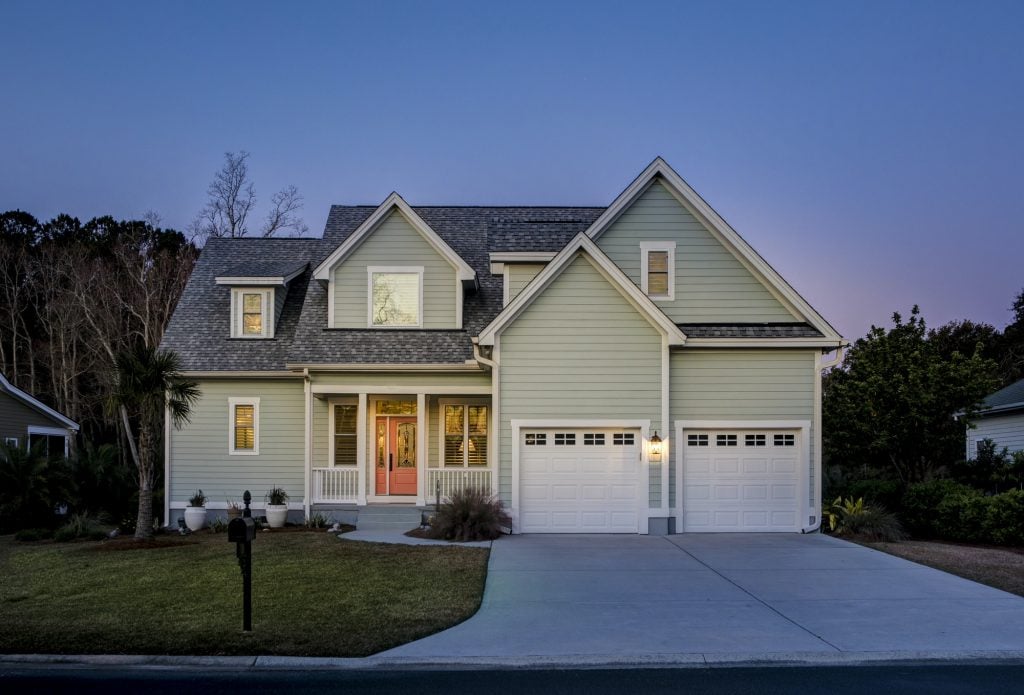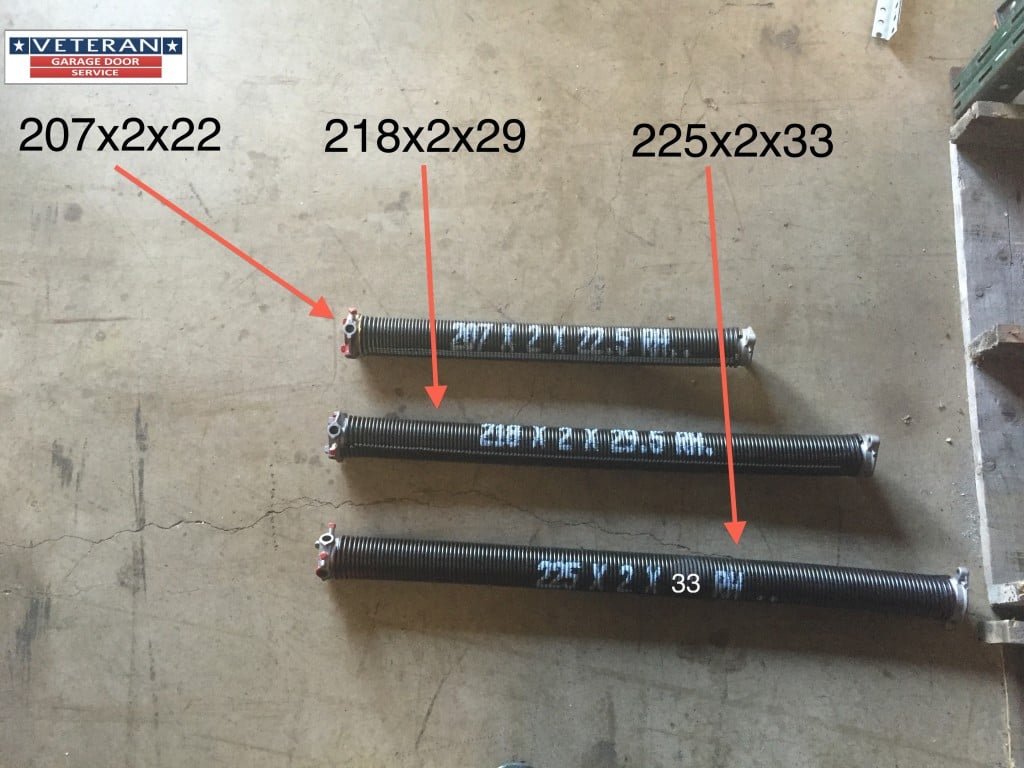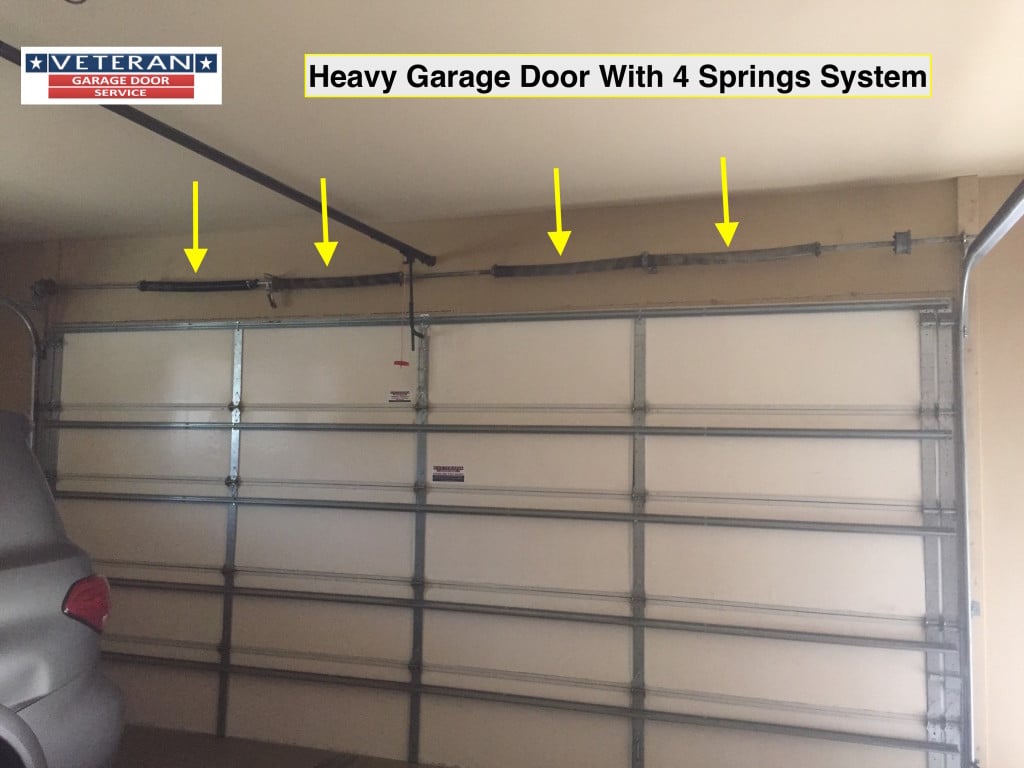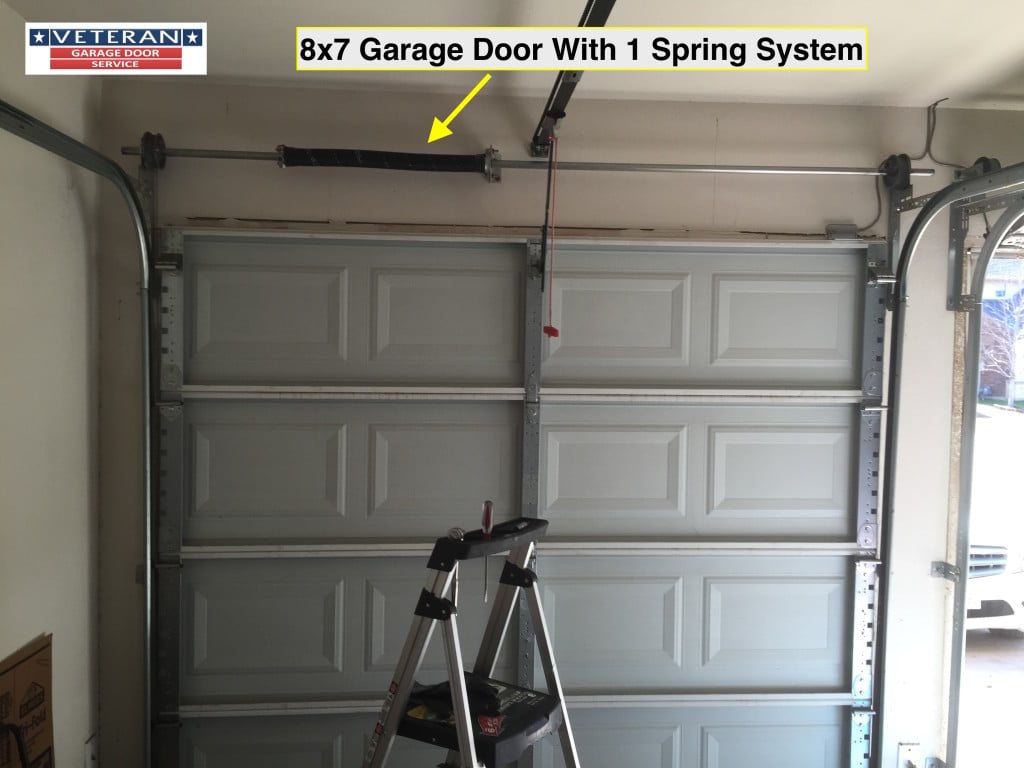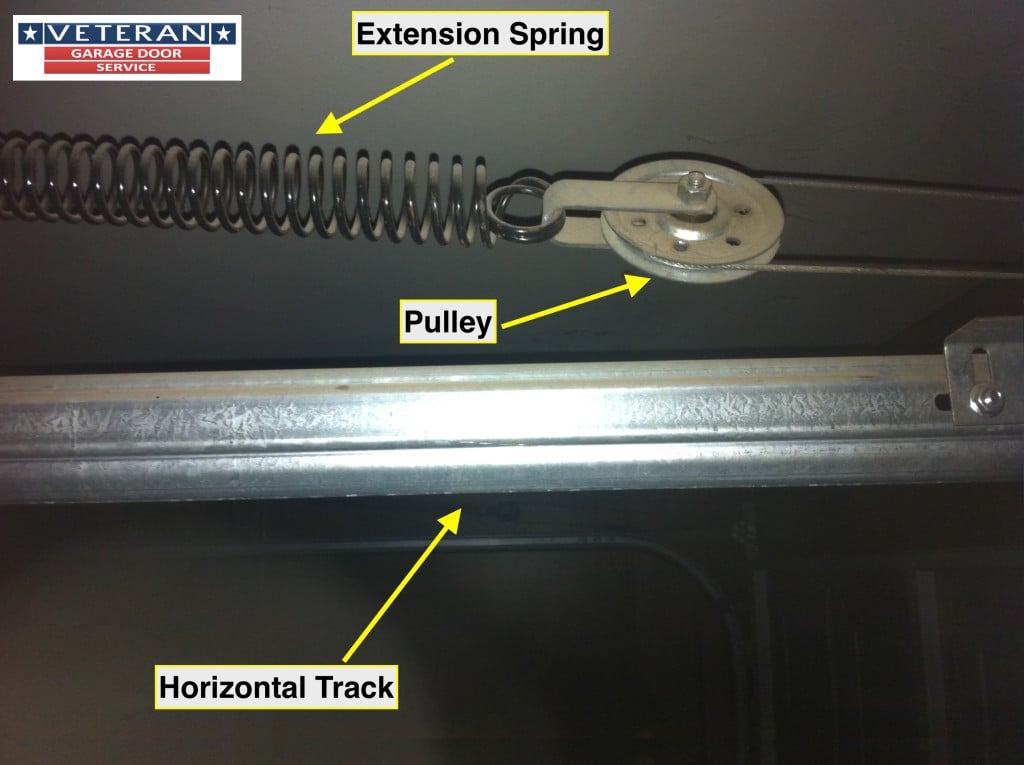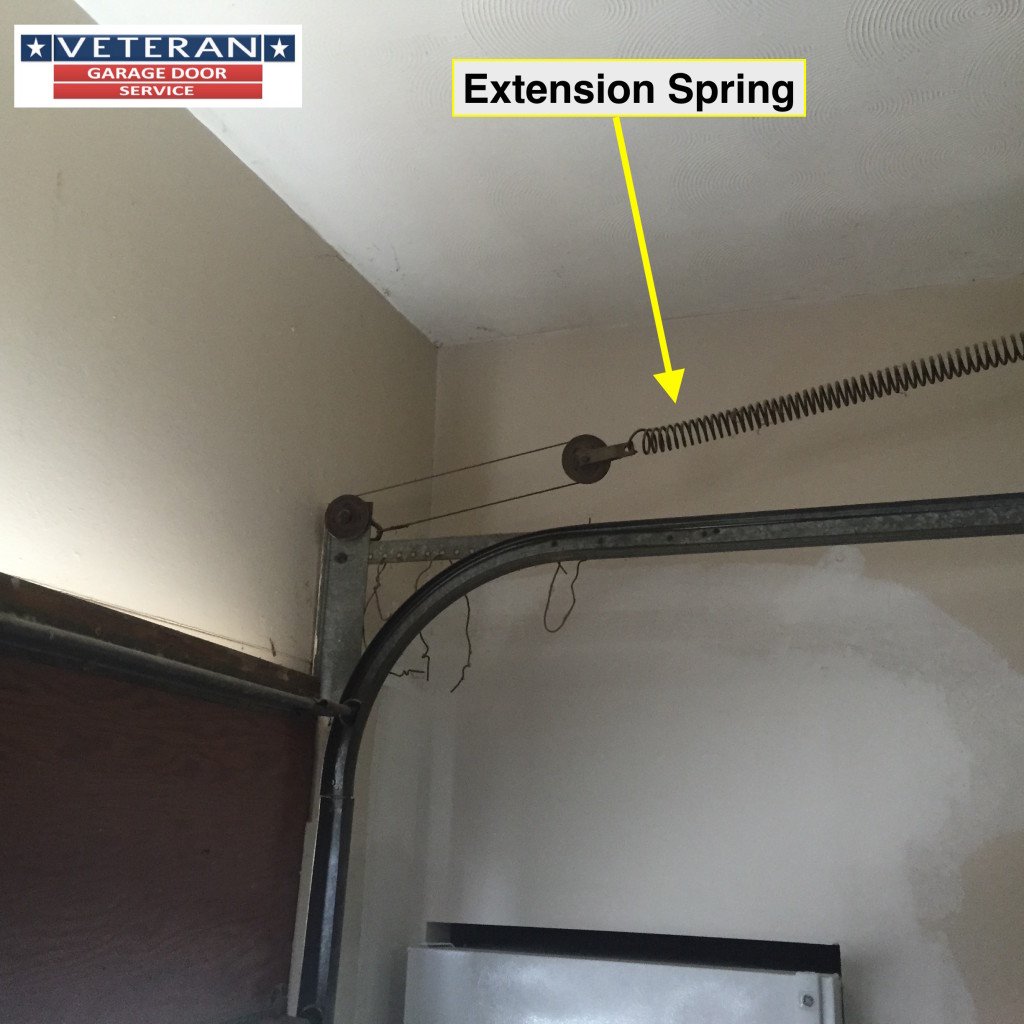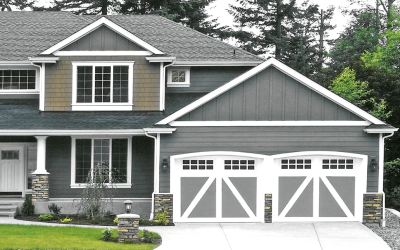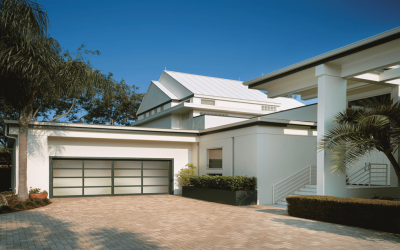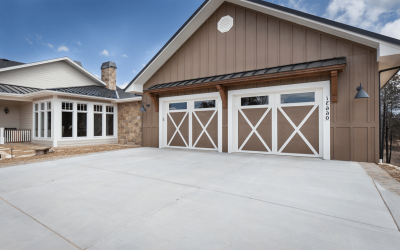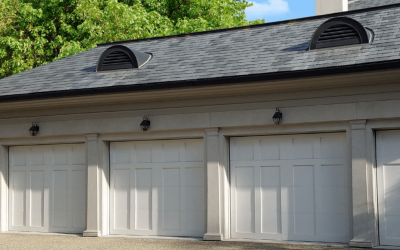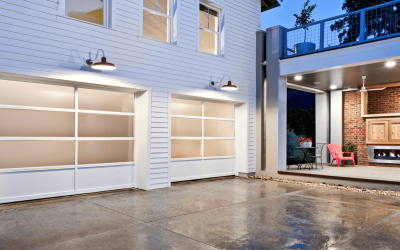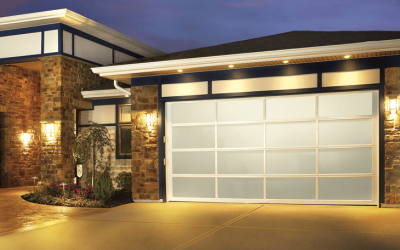To start with lets discuss what torsion springs are and what extension springs are and how each work to
open and close your garage door.
Torsion spring are the newer spring system in garage doors. In a torsion spring system there is a spring
bar/torsion tube mounted on the header on the inside of the garage door opening. Torsion spring(s) are
mounted on the spring bar/torsion tube with a center bracket(s) holding the spring(s) in place. At each
end of the torsion tube is a drum. Cables attach to the bottom bracket on each side of the garage door,
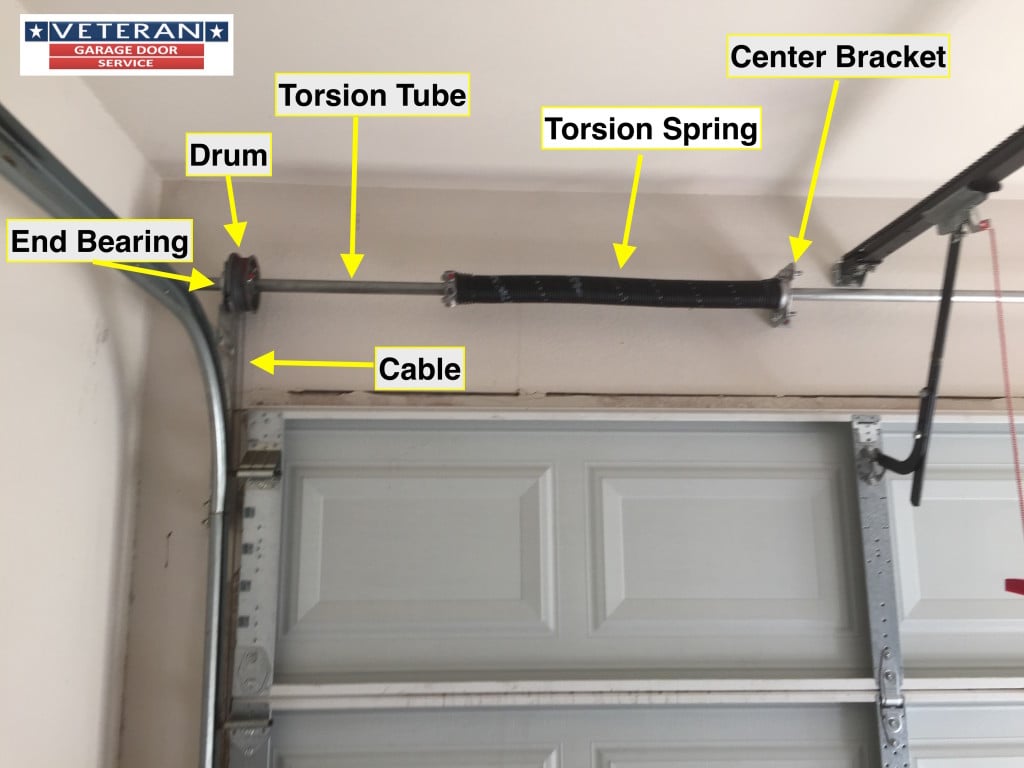
these cables then travel up the height of the door and wind around the drums as the door opens and
unwind as the door closes. The torsion springs provide the force to open and close the door while the
cable and drums do the lifting. Torsion springs come in different sizes. The size of the spring(s) you will
need is dependent on the weight of the garage door with all of the components installed. Torsion
springs are also rated by life cycles. A life cycle is one open and close of the garage door. Most
residential torsion springs are rated 10,000;20,000 or 30,000 life cycles. The life cycle rating is
determined by the spring manufacturer and is based on the gauge of the wire used to make the spring coils.
The length of the spring without the cones determines how much weight the spring can lift. Some
doors will function well with only one spring while other doors may require two or more springs, again
this is determined by the weight of the garage door.
In most cases we recommend a two spring system
over one spring as it provides a more balanced lift of the garage door. Small light weight single car
garage doors usually only require one spring.
Extension springs are the older spring system. Extension springs are mounted on both sides of the
garage door attaching to the track supports at one end and to the tracks at the other end via the cables.
In an extension spring system the cable still attach to the bottom bracket on the bottom panel of the
garage door and then through a series of pulleys attach to the springs and finally to the track, with
adjustment clips to balance the door.
Extension spring systems can be a challenge to balance especially
if only one spring is replaced. These springs stretch as the garage door is closed and loosen as the garage
door opens. In most instances there is a second cable on each side that attaches to the track then runs
through the center of the extension spring and then attaches to the track support brackets. These cable
are safety cables to keep the spring from flying apart and damaging property or hurting people or
animals if the spring breaks. Without these safety cables, if the spring breaks, it can cause major damage
and or injury. We find extension springs primarily in older homes.
I always recommend converting an extension spring system to the newer and safer torsion spring
system. Torsion springs are easier to adjust and make balancing the door much easier. Torsion springs
are also a much safer system as the spring is mounted on the spring bar/torsion tube and if the spring
breaks, it will stay attached to the spring bar/torsion tube. Torsion springs in my opinion provide a
better lifting system than extension springs and provide a safer environment in our homes.
Converting your garage door from extension springs to torsion springs should cost around $285.00 for
an 8-9 foot door, $350.00 for a 15-16 foot door and $375.00 for 17-18 foot doors. These are just
averages and could be different in your area.



